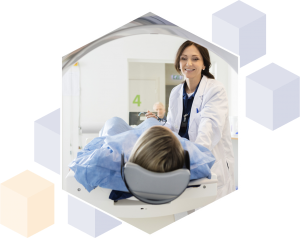
Information for Patients
Progress in the treatment of cancer is largely a result of gathering information from people like you. But we still have a long way to go in the fight against cancer, which is why your information is so important. This section provides answers to the most common questions we hear from patients like you.

What kinds of information are collected by CCR?
CCR collects general information, including:
- Age
- Sex
- Race
- Ethnic background
- Residence/address
- Occupation
CCR also collects information about disease and treatment, including:
- Type of cancer diagnosed
- Location of the cancer in the body
- Size of the cancer
- Date and stage of cancer diagnosis
- Treatment dates
- Types of treatment
What is the information used for?
CCR uses the data to write summary reports that inform the public, local health workers, educators, and legislators about the status of cancer. These summary reports do NOT contain any information on individual cancer cases. The data in these reports are combined into groups for analysis. Researchers may examine these data to identify areas that have high cancer rates and areas where people might benefit from cancer screening and education programs. Researchers can also use these data to look at trends in cancer diagnoses.
How is the information handled by CCR after reporting?
A network of 3 reporting regions receives these data and checks for accuracy, analyzes the data, and conducts studies specific to their local area. The central registry in Sacramento combines these data, performs additional quality control, and analyzes the data on a statewide basis.
Is my information kept confidential?
CCR takes the protection of a patient’s confidential health information very seriously. The law mandates that patient identity be kept confidential and that CCR information may only be released for research into the causes and cures for cancer. CCR will only release information to qualified researchers under tightly controlled circumstances where the research has first been approved by the California Committee for the Protection of Human Subjects (CPHS). Patients can refuse to participate in any particular research study or all research studies. Cancer patients may also request that their contact information be withheld from researchers by contacting CCR at (916) 731-2500.
Can you remove my name and personal information from CCR?
The state mandates that all cancers diagnosed in California be reported to the California Department of Public Health for CCR. CCR does not provide for removal of cancer patient information from the registry. To fulfill its purpose of providing information to find the causes and cures for cancer, it is vital for CCR records to be complete. However, patients can refuse to participate in any particular research study or all research studies. Cancer patients may request that their contact information be withheld from researchers by calling CCR at (916) 731-2500.
How can I obtain a copy of my CCR file/information?
CCR records can only be released to those who are legally authorized to obtain a patient’s confidential information (i.e., self, surviving spouse, conservator, etc.) CCR requires all patient record requests be made in writing.To request information for an individual in our database, download a Patient Record Request Form and see the Checklist of required documentation below. (Note, these forms will automatically download.)
Are cancer patients asked to participate in research studies?
CCR and regional registries are permitted to release patient contact information to qualified researchers. Some studies require that researchers obtain additional information from individual cancer patients. These researchers may contact patients to find out if they want to participate in a research study. However, patients have the right to refuse to participate in any research study without jeopardizing their current or future medical care. Cancer patients may also request that their contact information be withheld from researchers by contacting CCR at 916-731-2500.
Patient rights are monitored and protected by a federally approved Institutional Review Board (IRB) at the researcher’s institution. Patients are encouraged to report any concerns or complaints to the IRB. Information about how to contact the IRB should be included in the initial contact letter from the researcher.
Why participate in cancer research?
- It offers an opportunity to join the fight against cancer
- Thanks to the participation of many cancer patients, their families, and people without cancer, hundreds of research studies have been conducted using CCR data
- This research has contributed to the discovery of major risk factors for cancer, improved treatment, and better survival for cancer patients in California and across the United States
How can I enroll in a clinical trial for cancer prevention or treatment?
Information on clinical trials is available from the National Cancer Institute’s Cancer Information Service at 1-800-4-CANCER (1-800-422-6237), and from NCI’s web site.
How can I find out more about a particular cancer?
The National Cancer Institute’s Cancer Information Service at 1-800-4-CANCER (1-800-422-6237), and voluntary organizations such as the American Cancer Society (1-800-ACS-2345) (or the ACS office in your area) provide information on cancers. The Centers for Disease Control and Prevention (CDC) is also an excellent resource for information on cancer.
The California Department of Public Health offers a number of programs that focus on cancer prevention, control, screening and/or treatment including the California Obesity Prevention Program, Network for a Healthy California, California Tobacco Control Program, California Colon Cancer Control Program, and Comprehensive Cancer Control Program.

